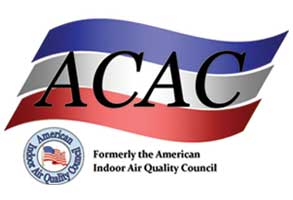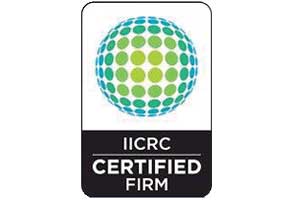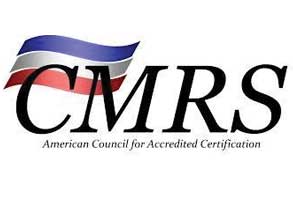No products in the cart.

ATHLETES AND AIR QUALITY
AIR QUALITY CAN NOT ONLY AFFECT YOUR PERFORMANCE, BUT YOUR OVERALL HEALTH
You’ve spent your life becoming the best version of yourself. You’ve put in countless hours, suffered through the pain, bounced back from the failures, and maintained your determination to constantly “be better.” You’ve got a team dedicated to backing you up, supporting your health and well-being so you can focus on your career. You’ve taken all the right steps.
Nutrition? On point. Training program? Impeccable. Hydration levels? Top-notch.
You’ve honed your body into prime physical condition. As a professional athlete, it’s probably a majority of what you focus on every day. We don’t blame you! You’re pretty much superhuman.
But what if there was something standing in the way of you being your absolute best? What if you’ve gone to all of these lengths to make sure your body is in top shape, but no one told you about one key factor in the equation that is keeping you from being your best?
We’re talking about air quality!
Think about it- all of the nutrition and training in the world won’t get you into your top physical shape if the air you’re breathing in (heavily) isn’t clean. Poor air quality can wreak havoc on your body which affects your performance. Outdoor pollution isn’t the only factor to consider when thinking about the effects of air quality; indoor air pollution is just as important. So, even if you don’t think you have air quality issues, we suggest double-checking just to be sure. When it comes to your health and your career, being informed is worth it.
ESPN REPORT ON ATHLETES & AIR QUALITY

“Watanabe (Nick Watanabe, an associate sports management professor at the University of South Carolina) and medical experts say exposure to poor air quality poses short-term and long-term health threats. Studies have shown it can also impact performance for both the athletes and the referees or umpires officiating their games.”
–Dan Murphy and Tracy Wholf ESPN
THE STUDIES
Research continues as to exactly how much air quality affects high-performing athletes, but the general consensus for years is exactly as Murchy and Wholf said: short-term and long-term inhalation of pollution causes negative health side-effects. As an athlete, you’re affected even more because of the training your career requires. McCaffery’s study points to three main reasons why.
1. Increased breathing: Athletes take as much as 20 times more air than a person at rest. That means you’re breathing in 20 times more pollutants than the average person, making the effect on you much greater. You may be at your top physical shape, but breathing in pollutants at that rate has a huge effect on your lungs (the money makers of your career).
2. Breathing through your mouth: When you workout, obviously you’re breathing heavier and rely on your mouth, not your nose, to increase your air intake. When that happens though, you bypass the filtration mechanisms in your nose that deal with some pollution in the air. That means all of the pollutants in the air go straight to your lungs, no passing go.
3. Increased airflow to your lungs: You push your body to the limits, which means the momentum of air pumped into your lungs is far greater than the average person. Unfortunately, that allows air contaminates to reach much deeper into your respiratory system.
With so much air pollution making it into your lungs, you’re much more susceptible to those negative health effects like breathing problems and brain fogs. When you can’t breathe or your brain is lagging, your ability to compete is obviously impaired- your body is not at its best. That’s why understanding air quality and taking it into consideration for your health routine is so important.
Now you may be thinking… okay but how do you know my game is being affected?
Take a look at the research
Many athletes around the world already voiced their concern over air quality and the effect it has on their performance. The Athletic’s left-hander Jesus Luzardo complained about playing during a particularly high Air Quality Index (a measure of pollution in the air), saying at 22, he shouldn’t be gasping for air while playing. In 1984, Olympic Athlete Steve Ovett collapsed after the 800-meter final complaining of respiratory problems caused by pollution. Pollution levels in India, specifically the Particulate Matter (PM), left many athletes struggling to breathe and complaining of coughing, dyspnoea, and nausea.
We could go on, but I think you get the picture. Air quality is important! Not just for your career but for your health.
Look at the air quality reports for your area and start to build your training program around these levels. You may not be able to completely eliminate exposure, but you can do as much as possible to limit it.
WHAT ABOUT YOUR HOME?
This one is the real kicker. The pollutants in your home can be just as harmful as the pollutants outside. From mold to bacteria and toxins, these microorganisms can wreak havoc on your body without you even realizing it.
Think about it. While you may not spend the majority of the day in your house, you still sleep there. Your clothes are there. Not to mention, your family is there. And all it takes is one unseen species of mold or microorganism to start affecting your health and the health of your family. They can attach to surfaces throughout your home (including your clothes) and float unseen throughout every room.
Maybe you’re not constantly exhausted from training but from mold exposure in your home…
“Okay, so what if I have a new home? I don’t have to worry about it then, right?”
We hate to be the bearer of bad news but that is not true. We’re finding that more and more new homes already have toxins present just from the building stage. With how quickly we build homes now, and with the products used, indoor pollution now often starts before you even walk in the brand new door.
So, what do you do?
YOU START TAKING STEPS TO ENSURE CLEAN AIR IN YOUR HOME.
1. Test your home.
Whether you test it yourself or hire a home inspector, take a hard look at the levels of mold, toxins, and bacteria in your home.
2. Treat the contaminants in your home.
If the tests report contaminates in your home, you need to hire a remediation company to take care of the problem. But, be picky! Make sure that this company remediates properly, finds and fixes the source of the problem, and gets rid of every contaminate in your home. Here’s a PDF with questions to ask for more information.
3. No contaminates? Prevention!
All it takes is one open window or one small leak for mold to make your home its home. Check out our prevention page for a full list of steps you can take to mold-proof your home. If you stop the contamination before it starts, your health won’t be affected in the first place.
The Center for Disease Control and Prevention confirmed it: indoor contaminants can cause serious health effects. Health effects that will hinder your performance. With the steps above, you focus on becoming the best athlete you can be.
WHAT WE CAN DO FOR YOU
HomeCleanse has helped a number of athletes, celebrities, CEO’s and producers over the years create better air quality in their homes. We know that air quality is important not only for your health but also for your career. The last thing you want to be worrying about is if the air you’re breathing is making you feel unwell. No one has time for that!
We’ll take the time to fully remediate any contamination in your home and fix the sources that caused the problem in the first place. You can also rest assured that we won’t leave until the job is done and your home is safe.
Fill out the contact form below to speak with HomeCleanse’s President Michael Rubino about your air quality concerns.
Where we service
We have offices in New Jersey, Florida & California that allow us to service the entire Continental US. We are CMRS Certified, Certified Microbial Remediation Supervisor, Certified Member of IAQA, IICRC, ACAC, & A+ Rating BBB



